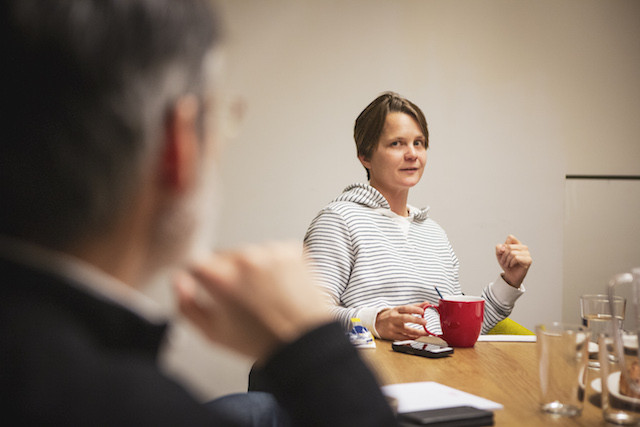“In Luxembourg we need more philanthropic money going into startups at early stage,” Larissa Best told Paperjam and Delano journalists during an interview on Friday.
The entrepreneur and angel investor explained that the small size and lack of maturity of the startup scene in Luxembourg meant it lagged far behind its neighbours. But to encourage more people to become entrepreneurs, particularly those from more diverse backgrounds, seed funding was urgently needed to remove some of the risk.
Best cited the example of an entrepreneur who was about to lose his house which he had remortgaged to finance his business. “These are things that no-one talks about. We have to de-risk the risk,” she said.
Also the co-founder and head of Equilibre, a platform campaigning for gender complementarity, Best said that it was even harder for women entrepreneurs to secure seed funding because women tend to undersell their returns in their business pitches compared to men. That said, Best added there was a lot of potential among women entrepreneurs in Luxembourg, a potential which she plans to develop further with existing women’s business associations in Luxembourg.
Plugging the funding gap
LBAN has attempted to plug some of the startup funding gaps but Best said that in Luxembourg there were too few business angels willing to reinvest in Luxembourg startups, namely because many startups struggle to be competitive, and those who succeed tend to move on.
She advocates for a system akin to that of Finland’s where entrepreneurs reinvest in the local ecosystem. “That’s why it flourishes so much. Among the projects I saw at the European Commission Horizon 2020, the nice projects came from Nordic countries because the seed funding is there and the ecosystem helps the ecosystem,” she said.
Best said that for her the solution was to invest in blended financing, looking at investments as philanthropic money. “We invest in society, we do something good. It’s a positive impact and we de-risk something that’s risky,” she said.
But, she said, there was always room for the State to step up and improve matters. Namely, creating a regulatory framework to remove or lower the prohibitive costs around the creation of smaller funds.
